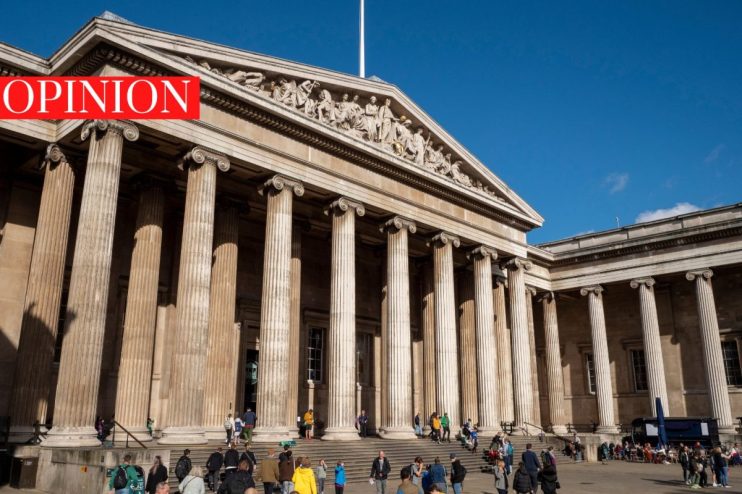London’s museums are a battleground for political activists and rewriting history

Despite a few recent successful pushbacks, Britain’s museums continue to tumble to political pressure. According to a compendium published by Policy Exchange today, museums are constantly at risk of politicisation. One of the historical jewels in the UK’s crown, the British Museum, is currently on the precipice.
Just last week, George Osborne, the Chair of Trustees, told the Culture, Media and Sport Select Committee that he’s working with Greece to identify “some kind of arrangement that would allow some of the sculptures to spend some of their time in Greece”.
Osborne is not alone in his interest in restitution. After an official gazette signed by the Nigerian President said the Oba of Benin was the rightful owner of all returned Benin Bronzes, many curators have expressed concern that the artefacts will be housed in a private collection where they cannot be viewed by the public. Despite this, London’s Horniman museum has said their “return was unconditional”.
The case of the Benin bronzes is a particularly painful one to the descendants of many enslaved Nigerians living as part of the diaspora across the globe. We now know that the brass used in their formation was likely traded by the Oba of Benin with Portuguese merchants in exchange for chattel slaves. The descendants of the men and women who bore those chains may now be unable to view the art produced from the profits of their enslavement.
Restitution is not the only threat facing London’s museums. The History Matters Compendium also documents recent efforts by curators to politicise their collections. Kew Gardens have scheduled a festival celebrating non-binary plants. Kew is no stranger to politicised curation. In the 2021 report, “Politicising Plants”, Policy Exchange criticised Kew Gardens’ announced intention to “decolonise” their collections. While Kew have dropped reference to “decolonisation” it is not clear that practice at the botanic gardens has changed. On their website, Kew insists their intention is to “inquire afresh into our colonial and imperial past”.
This story is far too familiar. The Mary Rose Museum recently published a blog post attempting to “queer” mirrors and nit combs found aboard the ship. The wreck, which was in its day the 16th c. flagship of Henry VIII, is managed by Historic England. It received a £655,000 Culture Recovery Grant after the pandemic. Similarly, the National Maritime Museum, which receives around half of its funding from DCMS, has declared that its exhibit on Atlantic Slavery “no longer reflects the approaches or ambitions of the museum”.
Museums are under constant threat of denigration. These are public assets, and as such many are funded by the taxpayer. And yet, the views and perspectives of the public are not being considered. According to polling conducted by Policy Exchange 77 per cent think “we should learn from history rather than try to re-write it”.
It shouldn’t be left to ministers to intervene, but where museums are unable to respect the views of the public, the government should insist the voices of a minority of activists are not allowed to dominate. It is vital that institutions are safeguarded by non-partisan trustees who intend to defend history. It is also time for trustees to take on their roles as stewards of the past and prevent the rapid rewriting of our heritage.